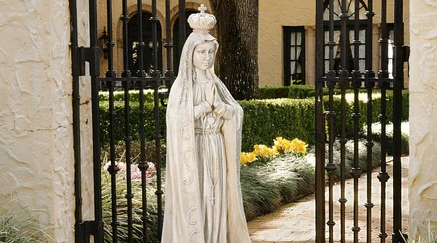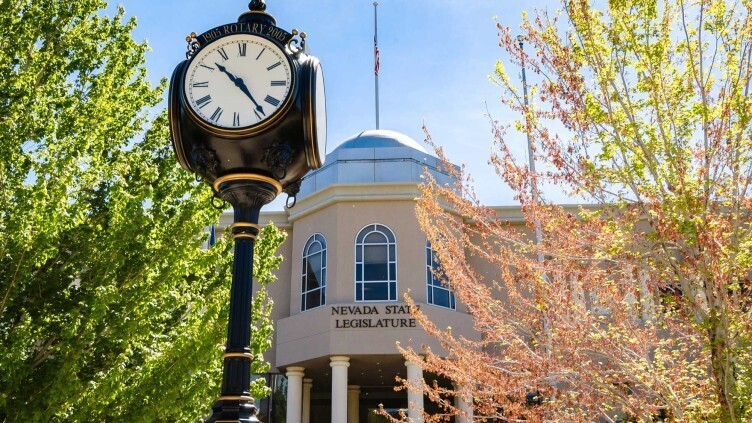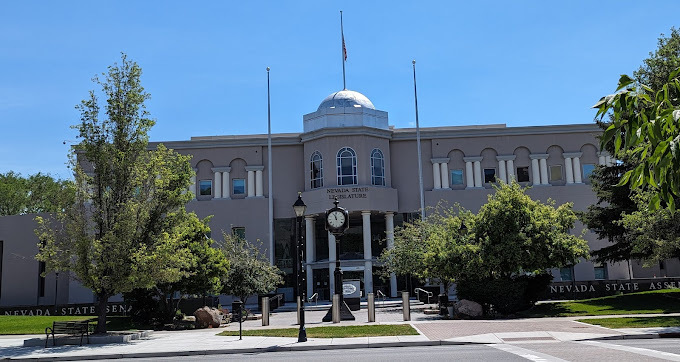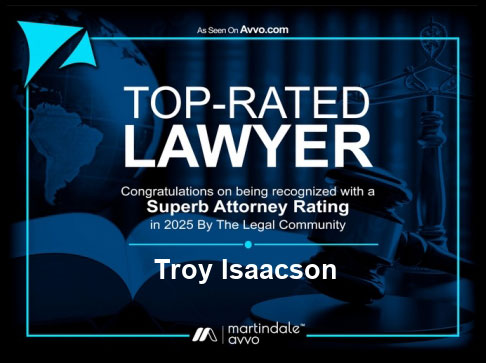ISAACSON LAW BLOG
Legislative Update – May 24, 2023

Legislative Update – May 24, 2023
The 24th of May brings us to day 108 of the Nevada legislative session giving us only twelve remaining days before the Legislature must pass all bills out of both houses. Thus far, several bills have died, but some significant others are still alive. However, none have yet to be presented to the Governor for his signature. Here is an update on each of the proposed bills. We’ll start with those that have died.
Dead Bills
Assembly Bill 111
AB111 sought to protect those individuals who wish to display religious items within that portion of a unit to which they have exclusive use and occupancy. This protection would have not applied in certain circumstances, such as where safety concerns existed, the size exceeded 36 x 12 square inches, or the door frame to which things might be affixed. Moreover, the statute would have affected an association’s ability to unreasonably restrict the placement and manner of display.
Assembly Bill 142
Generally, AB142 would have allowed foreclosure sales to be conducted via the Internet. Among other provisions AB142 would have required any sale to be conducted on an Internet website or other electronic medium to provide a specified address. The bill would have further allowed the website provider to collect payments, postpone the sale, or take other actions in connection with transactions. Additionally, AB142 would have further precluded an appraiser involved in the sale or anyone affiliated with the Internet website provider from participating in purchasing the property.
Assembly Bill 324
Currently, most lawsuits involving community associations must first be submitted to mediation. See, NRS 38.310. AB324 would have required the Real Estate Division to adopt regulations establishing a mechanism by which a unit’s owner who is party to a claim submitted for mediation would have to deposit an amount of money equal to any assessment and any pending assessment that was to become due and deemed on time while the mediation is still pending into an escrow account maintained by the Division.
AB324 would have further allowed a mediator to issue a report if a party to the mediation failed to participate in good faith. A finding that a party has failed to mediate in good faith would thereafter have been admissible in a subsequent lawsuit should the matter not be resolved. The report would further be provided to the Division.
Senate Bill 174
SB174 sought to remove language exempting a community association manager or its employees from being licensed as a collection agency as otherwise required by NRS Chapter 649. Therefore, if it had become law, community association managers would have to either be licensed as a collection agency or ensure all collection activities are being performed by a licensed collection agency.
Senate Bill 175
SB175 sought to provide additional protection from foreclosures for veterans, senior citizens, and individuals with disabilities. Among other items, where a veteran, senior citizen or disabled person was involved, SB175 would have required an association to utilize the same foreclosure procedures as banks. The bill would have also required associations to inform its members that they may have greater protections from foreclosure and to verify that the person subject to foreclosure is not a veteran, senior citizen, or disabled person.
Had SB175 become law, it would have made a knowing foreclosure in violation of the statute a misdemeanor and created possible liability for damages, including attorney’s fees and costs. Where it was believed that an association had commenced a foreclosure in violation of the regulations, SB175 would have allowed the Attorney General’s office to institute appropriate legal proceedings.
Senate Bill 358
By way of SB358, Senator Ira Hansen and his wife, Assemblywoman Alexis Hansen, proposed the complete repeal of NRS Chapter 116; the laws generally governing Nevada homeowners’ associations. By way of SB358, the Hansen’s further proposed repealing certain provisions NRS Chapter 38 which requires the use of alternative dispute resolution efforts (mediation or arbitration) before litigating claims on the interpretation, application, or enforcement of a community’s governing documents.
Overview of Legislation that Remains Pending:
Assembly Bill 189
Versions of AB189 have been passed by both the Assembly and Senate. A reconciliation bill has been passed by the Senate and it is expected to pass the Assembly. If passed, this bill would alter a law that passed in 2021. In the 81st Legislative Session, AB249 was passed which created NRS 116.347. Under certain circumstances, the existing law prohibits a common interest community from restricting the hours in which construction work may begin. Under current law, an association is prohibited from placing greater restrictions on construction hours than those restrictions which may have been adopted by the local municipality. If AB189 passes, in a county whose population is 700,000 or more (such as Clark and Washoe Counties), a governmental authority (city or county) would be precluded from requiring construction to commence after 5:00 am from April 1st to September 30th. Additionally, a homeowners’ association would be required to allow the commencement of construction activities as provided for by local ordinances. Therefore, if it passes, during the summer months, the Las Vegas Valley will be required to allow construction activity to commence no later than 5:00 am.
Assembly Bill 309
AB309 has been passed out of the Judiciary Committees in both the Senate and Assembly. However, it must pass through both chambers before it can be presented to the Governor. AB309 would allow the use of electronic ballots for the election and removal of board members and for the election of delegates or representatives to exercise voting rights. If it passes, AB309 would make further changes to the election and removal process, including:
- Allowing board members who are subject to a removal election to submit a written request for a Board meeting to discuss the removal.
- Allowing an association to conduct a vote for the election or removal of a Board member without a meeting.
- Authorizing the election or removal vote without a meeting.
- Allow the units’ owners to vote by using voting machines.
- Establishing requirements relating to the use of electronic voting for the election or removal of a board member without a meeting.
In addition to revising how elections are conducted, AB309 would further:
- Authorize money in the operating account of an association to be withdrawn without the usually required signatures for the purpose of making certain automatic and annual payments.
- Require the Commission for Common-Interest Communities and Condominium Hotels to adopt regulations establishing requirements relating to the transfer of certain items upon the termination or assignment of a management agreement.
In general, AB309 seeks to bring the operation of community associations into the 21st Century and allows for greater efficiency in their operation. Isaacson Law supports the passage of AB309.
Assembly Bill 513
AB513 has been presented to the Assembly Committee on Ways and Means but has not gone any further. It therefore seems unlikely to become law. As it applies to homeowners’ associations, AB513 seeks to remove references to the foreclosure mediation program which is currently a requirement of NRS Chapter 107. Therefore, the effect on homeowners’ associations would be minimal.
Senate Bill 368
Though not directed specifically at Nevada community associations, SB368 may have an impact. Current law provides that any restriction or prohibition in a written instrument relating to real property, such as a community’s CC&Rs, that purports to forbid or restrict the conveyance, encumbrance, leasing or mortgaging of real property on the basis of race, color, religion, ancestry, national origin, disability, familial status, sex, sexual orientation, or gender identity or expression is void and unenforceable by operation of law. Where such a provision exists, the law currently authorizes an owner of real property that is subject to a restriction to record a declaration of removal of the discriminatory restriction or prohibition by filing a declaration form with the county recorder. If an owner files such a form, the law currently requires the county recorder to attach the declaration form to the original recorded Declaration to indicate that the discriminatory restriction or prohibition is void. (See, NRS 111.237).
If it passes, SB368 would eliminate those provisions relating to the filing and recordation of a declaration of removal of a discriminatory restriction or prohibition. Instead, an owner or other interested persons (such as a community association) would file a petition in the District Court asking that an order be issued directing the county recorder to redact the discriminatory language from the original document. If, after considering the petition, and any objections, the District Court determines that a restriction or prohibition is void and unenforceable by operation of law, the Court would then issue an order directing the county recorder to redact the discriminatory restriction or prohibition from the original document. SB368 has been passed out of the Judiciary Committees for both the Senate and Assembly with a “do pass” recommendation. It has not, however, been passed by either chamber. Given it has been heard by the Judiciary Committee in each Chamber, the fate of SB368 remains uncertain.
Senate Bill 378:
SB378 would require a homeowners’ association to maintain a cybersecurity insurance policy that covers possible losses should there be a data breach. The nature and extent of insurance that may be required would be dependent upon whether the association is working with a payment processor as well as the number of units within the community.
SB378 would further allow an association to suspend electronic payments through its portal once a homeowner’s account has been assigned to collections and would allow an association to limit communications to and from a homeowner to a single email address. Should a home end up in a non-judicial association foreclosure, SB378 provides that an association may acquire the property for the amount of the unpaid assessments, otherwise known as a credit bid. Like SB368, SB378 has been passed out of the Judiciary Committees for both the Senate and Assembly with a “do pass” recommendation. It has not, however, been passed by either chamber. Given it has been heard by the Judiciary Committee in each Chamber, the fate of SB378 similarly remains uncertain.
Senate Bill 417
NRS 116.31175 currently allows an association to charge up to $10 per hour for a unit owner to review the association’s books, records, contractors, or other documents. If passed, SB417 would increase that amount to $25 per hour. SB417 further seeks to curb false complaints by increasing the administrative fine that may be imposed by the Commission for Common-Interest Communities to anyone who knowingly files a false or fraudulent Intervention Affidavit from $1,000 to $10,000. The legislature would further allow the Division to designate a person as a vexatious affiant. A person who might be deemed a vexatious affiant would then have to seek permission from the Ombudsman before filing an Intervention Affidavit.
If you have questions on any of this pending Legislation or other matters, please call Troy

LOCATION
- (702) 529-2559
- 4730 S. Fort Apache Rd, Suite 280 Las Vegas, Nevada 89147
BUSINESS HOURS
Monday – Friday: 8:30am to 5:30pm
Recent Blog Posts

Legislative Session 4-20-25

Legislative Session 3/15/25



